Journey to the Real Face of Tahiti – 1: Island Traditions Connect the Earth’s Future, Part 2
2020/6/12
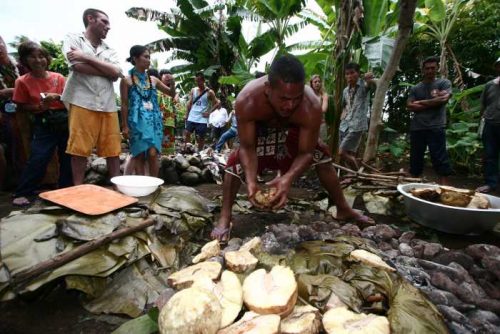
Learning about Abundant Living through Farming Experience
We start making our lunch with fruits and vegetables from the field. Of course, the menu is traditional Maohi Polynesian cuisine. All natural materials are used for the tableware and utensils as well, such as coconut, bamboo, and banana leaves. The wisdom of the indigenous people’s way of life, which is respectful of and coexists with nature, is being rethought around the world as an idea for a sustainable society. The ingenuity of using the nature around us is an important reminder of the importance of rethinking the way we live our lives, which is now based on the consumption of large amounts of plastic. The meat and vegetables are wrapped in banana leaves and grilled to perfection, all with a very gentle taste. It was a very satisfying lunchtime to enjoy the bounty of Tahiti.
Taro, banana, fish and chicken are wrapped in banana leaves and laid on the fire. It is then covered it with several large banana leaves and steamed for about an hour.
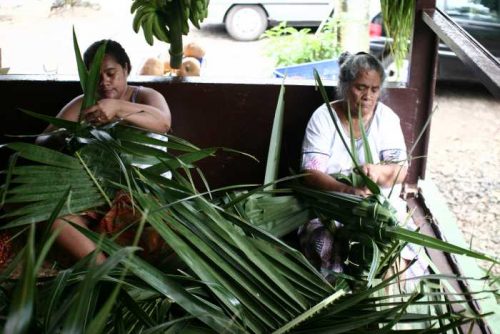
Banana leaves are really useful and versatile. Anyone in Gabi’s community, young or old, can weave a basket with banana leaves.
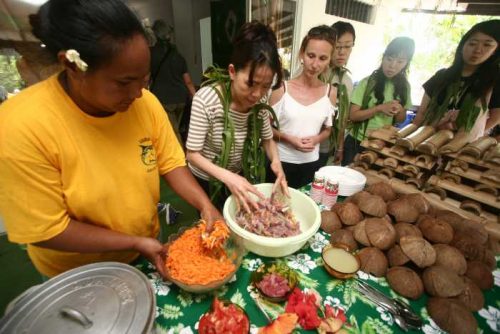
“Poisson Crus” is a typical family dish, that means raw fish in French. It is a tuna fillet and vegetables, marinated in coconut milk.
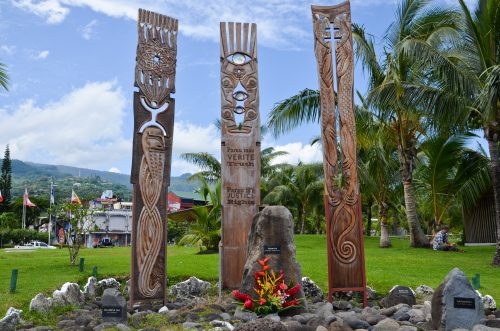
Sustainable Living for the Future
For people in many other countries, Tahiti has a reputation as a resort destination. However, Tahiti’s history should never be forgotten, as the French occupation took away the culture and identity of its indigenous people, and nuclear tests were carried out without regard for the beautiful nature and for the lives and livelihoods of its people. In fact, Gabi himself is also a victim of nuclear testing. Having experienced the inhumanity of nuclear weapons firsthand, he has been taking action to demand the restoration of the rights of the indigenous Tahitians and an end to nuclear testing, and he continues to speak out to the international community calling for the decolonization of Tahiti and the right of the Maohi to self-determination. The continuation of traditional farming methods that were on the verge of being discontinued in colonised Tahiti is an important action to protect the identity of the indigenous people.
In Tahiti, 193 nuclear tests were conducted between 1966 and 1996. A monument has been erected near the port of Papeete in memory of those who were exposed to the nuclear tests.
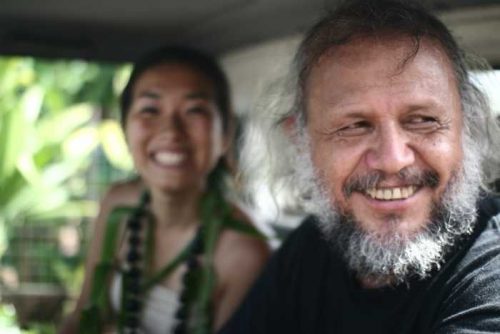
With his back to the field, Gabi tells us, “big ships have always brought us things we didn’t need. They have brought weapons, different religions, or disease. Peace Boat is the first big ship that has brought peace here.” Meeting with Gabi gives us the opportunity to see another side of Tahiti that cannot be seen through sightseeing alone.
